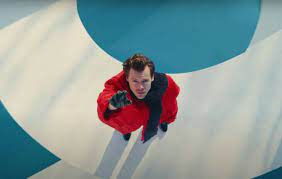

5 More Restaurants to Try in Birmingham
Selma Maric 1. Cafe Dupont The priciest dinner option out of almost anything, but the quality of the food is immaculate. The menu is very...
Selma Maric
Apr 26, 2022


"As It Was", My New Favorite Song
Angel Smith Harry Styles recently released a new song “As It Was”, which is the lead single from Harry’s upcoming album Harry’s House....
Angel Smith
Apr 26, 2022


Microplastics: the Effect on People
Christine Peacock We all know about one of the main global crises: pollution. Plastics and how they affect the environment is certainly...
Christine Peacock
Apr 26, 2022






Comments